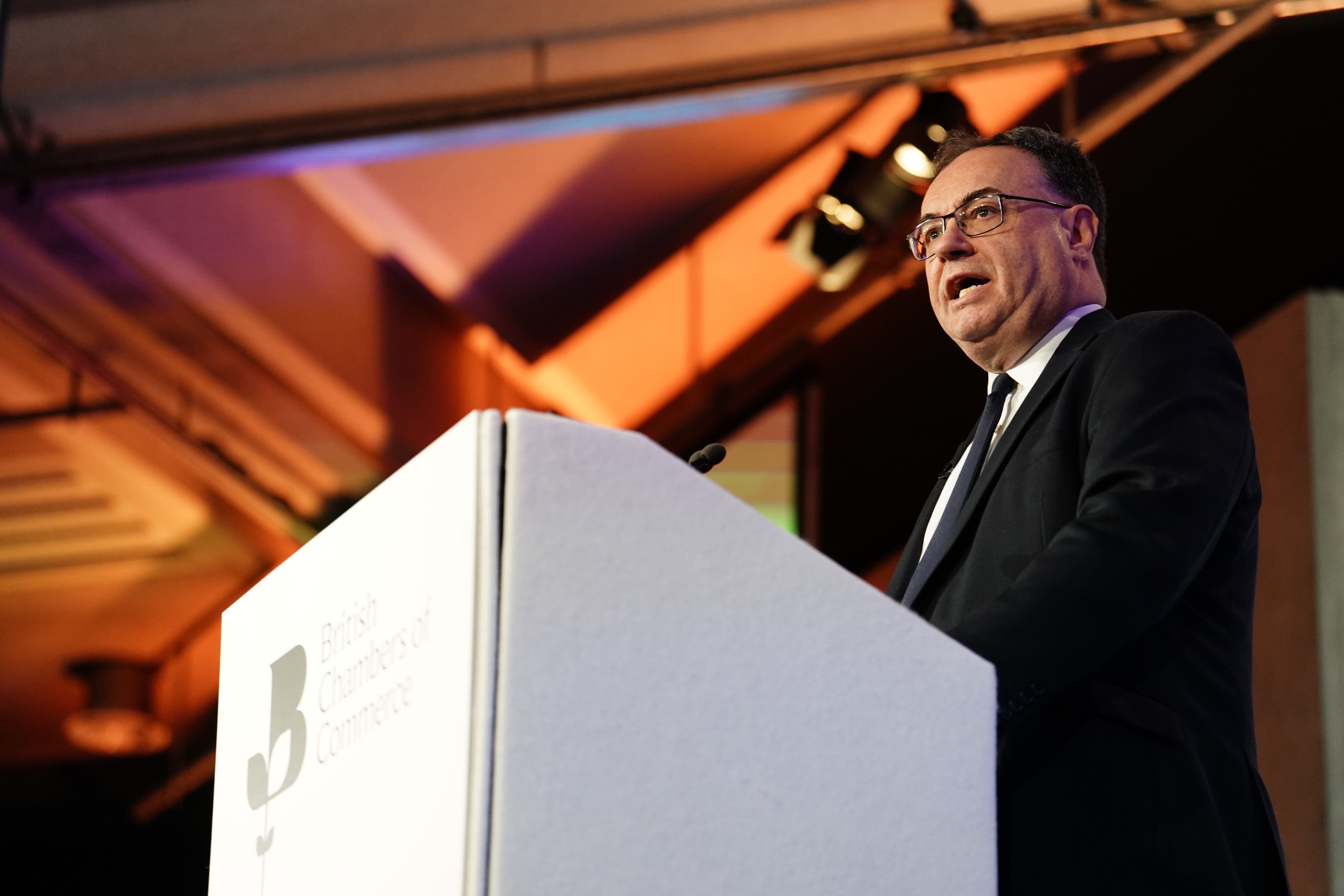Andrew Bailey and Jeremy Hunt bet their future on a shock 0.5 point rate rise – it had better pay off
They must both hope this intervention will finally sort the inflation crisis, says James Moore


The Bank of England has finally taken a decisive, hawkish turn, imposing a shock 0.5 percentage point interest rate rise on Britain’s beleaguered borrowers.
Its previously cautious approach led to City predictions that it would only hike rates by a quarter point.
But the backdrop to the decision has been getting increasingly uncomfortable for governor Andrew Bailey and his rate-setting Monetary Policy Committee (MPC).
It noted that May’s 8.7 per rate of inflation, unchanged from April, was 0.3 per cent higher than its forecast published in May’s inflation report. Worse still, services inflation rose to 7.4 per cent in the same month, 0.5 percentage points higher it had expected. Then there was “core” inflation, which excludes volatile food, alcohol, tobacco and energy prices. That number, seen as a measure of the underlying inflation in the economy, unexpectedly leapt to 7.1 per cent from 6.8 per cent, its highest for more than three decades.
“While these data are perhaps not quite a ‘break the glass’ moment for the MPC, they look close to us,” says Citigroup economist Benjamin Nabarro.
It was clearly too much for Bailey, who belatedly picked up his axe and swung it hard.
Other big central banks have been easing off the pressure (the US Federal Reserve and the European Central Bank have imposed 0.25-point rises) but Britain’s inflationary fires are burning hotter.
“The scale of the recent upside surprises in official estimates of wage growth and services CPI inflation suggested a 0.5 percentage point increase in interest rates was required at this particular meeting,” the Bank’s minutes said.
“We know this is hard – many people with mortgages or loans will be understandably worried about what this means for them. But if we don’t raise rates now, it could be worse later. We are committed to returning inflation to the 2 per cent target,” Bailey himself added.
While two of the committee voted for no change – taking the view that inflation should fall over the summer, reducing upward pressure on wages – the hard fact is that price rises have consistently overshot almost every forecast in recent months.
Political pressure on Mr Bailey is only going to increase. He is fortunate to boast the strong support of chancellor Jeremy Hunt, who has repeatedly promised inflation will halve by the end of the year – a pledge that may yet come back to haunt him.
However, rumblings of discontent from unions, business groups and Tory backbenchers are growing louder, even before we get to the devastating impact this leap in rates will have on borrowers. Those who have loans that track base rates face an immediate gut punch; millions more will feel the pain when they come off expiring fixed-rate deals.
While this bruising process plays out – it will take billions of pounds out of the consumer economy and could yet lead to revived talk of recession – the fortunes of Bailey and Hunt are becoming ever more closely entwined.
In particular, Hunt is playing with fire given the impact on borrowers in the blue wall of southern England, where housing is more expensive and loans are advanced on much higher multiples than further north.
In the background there remains a question: should the Bank have gone harder, faster? Would that have resulted in a lower peak?
Markets are forecasting that rates will now peak at 6 per cent – speculation the Bank did nothing to dampen, implying at least two further big rate rises, or four smaller ones.
As for Bailey, he has nailed his colours to the mast. For the sake of his reputation, not to mention the electoral prospects of the chancellor and his party, it had better work.
Join our commenting forum
Join thought-provoking conversations, follow other Independent readers and see their replies
Comments
Bookmark popover
Removed from bookmarks